Saving Water at Home
Monday, April 28th, 2014
Saving Water at Home – One of the hot topics in Ireland these days is that of the upcoming metered water charges being introduced to our nation. A great many people are, somewhat understandably, annoyed at the introduction of what feels like an additional unfair and unnecessary bill on top of what is already a rapidly increasing cost of living, with people having less net income than before. The situation has led some people to staunchly oppose the installation of water meters in their area by means of public protest. Such demonstrations occurred nationwide including in counties Cork and Dublin.
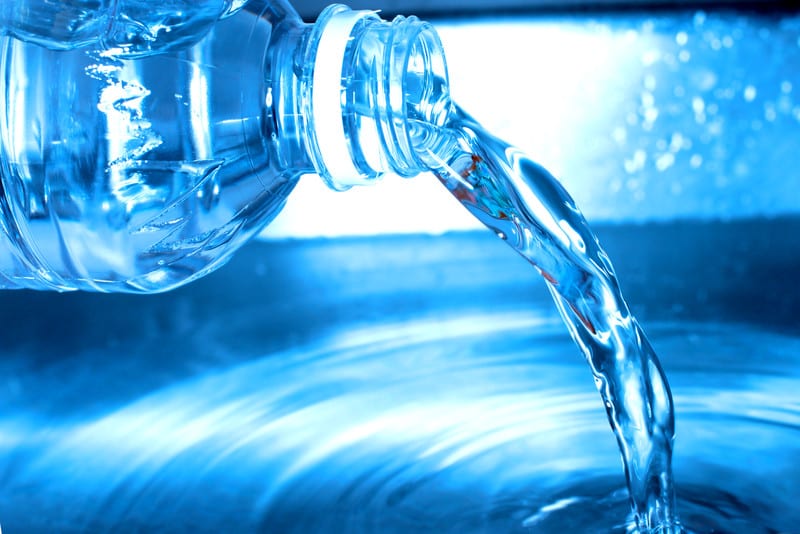
Tips on Saving Water at Home
While, at the best of times, most people did make a conscious effort to Saving Water for environmental reasons, the prospect of losing out on much-needed money is making more homes and business more aware than ever in relation to how much water they are using. With that in mind, here are some top tips on how to limit the amount of water you use up in the day to day running of your home:
Toilets:
The toilet is the most water guzzling device found in any household. On average, people flush their toilets no less than five times every single day (simply not flushing your toilet in order to save water and money is not recommended for health and sanitation reasons). At first thought, it may seem impossible to reduce how much water is used up with every single flush, but there are in fact ways to do this.
Around the mid-1990s, toilet design and mechanics changed significantly for the better, with the new generation of toilets using significantly less water per flush than their predecessors while being capable of flushing away the same amount of unwanted waste. If you have a particularly old toilet, upgrading it to a more efficient model is one way of limiting how much water is literally flushed away. ‘Dual flush’ toilets are particularly useful in that they can limit how much water you use depending on the manner and amount of waste that needs flushing. This prevents you from having to use up more water than is necessary when flushing away small amounts of waste. Of course, buying a new toilet is a fairly expensive and lengthy undertaking which is not necessarily a viable option for everyone.
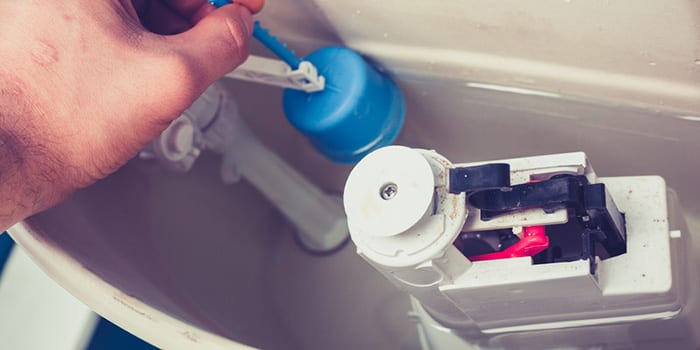
If this option is not available to you, there are ways of limiting how much water your older, less efficient toilet uses up when it flushes. Placing a solid object in an old toilet’s cistern will limit how much water is used in every flush. If you use the right sized object you will be able to save a large amount of water while not reducing your toilet’s ability to dispose of waste adequately. An old favorite used to be placing a brick in the toilet’s cistern. While your standard brick is pretty much the exact size and density required to get the aforementioned cistern water balance right, it is not a very good long term solution to your toilet’s water wastage problem. Most bricks are soluble in water. This means that they break down over time when exposed to water. This, in turn, can lead to bits of clay clogging up your drainage system’s piping which can lead to awkward plumbing works having to be carried out at a later date. An alternative and more durable object of similar size should be used instead.
One last water saving tip as far as toilets are concerned is to not use your toilet as a bin. People often use their toilet as a means of disposing of tissues and other light waste (or, in some cases, not so light waste). The bin was made for such things and doesn’t require lots of water to be used up in order for it to work, so use your bin as a bin instead!
Taps:
Another, less obvious, form of water wastage in a typical household is that of dripping and leaking taps. While one drop of water won’t make much difference to your water bills, if you have enough of them they can really add up! The average dripping tap is believed to waste in the region of 90 litres of water every week. When you add that up, it amounts to upward of 4,500 litres of water wasted every year due to something as simple and easily rectified as leaking taps.
To prevent this surprisingly excessive loss of water all you have to do is ensure that your taps are firmly closed after each use. It really is that simple. In some cases, taps may continue to drip after being fully closed. In such cases, it means there is a problem with the taps and a professional plumber should be called in to rectify the situation. Do not use excessive force to close the tap as this will only cause further damage, resulting in trickier (and more expensive) repairs being needed.
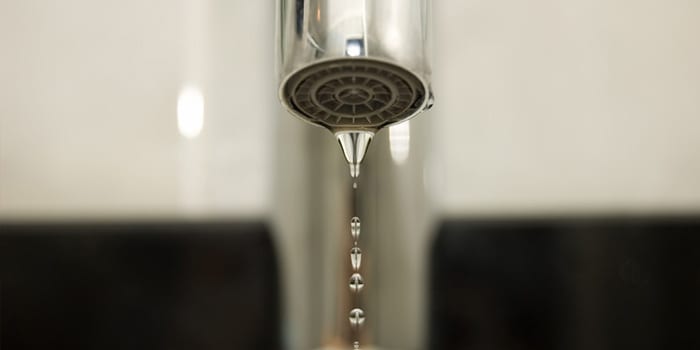
Another way to limit how much water your taps use up is to only leave them running only when the water is actually needed. Do you really need to leave a high-pressure stream of water running for the entire duration of your morning wash up routine (eg: brushing teeth, washing face etc.)? In many cases, a small dribble of water to get started and another one to finish up is generally all you need. While such water saving measures may, at first, seem petty and insignificant, they do add up over time. Once you get into the habit of not leaving the tap running in such situations you’ll soon wonder why you ever bothered doing it in the first place at all.
If your taps exert a very high pressure of water, you might want to consider having low-flow tap aerators installed. These handy devices reduce water pressure in your taps, meaning less water is used up by your taps per second. This will not inhibit your ability to wash yourself (most taps send out more water per second than people can use anyway), but will save both water and money.
Pipes:
Taps are not the only thing which waste lots of water over time via drips. Pipes are also susceptible to minor leaks and drips which waste a surprisingly high volume of water. Unfortunately, dripping pipes are not as easy to spot as dripping taps so you will need to be a bit more proactive in terms of leak detection as far as they are concerned. You should regularly check all radiator, bathroom and kitchen related piping for leaks, drips and punctures. This will allow you to identify any problematic pipes and have the issues nipped in the bud by a professional plumber before they become major problems and require more complex (and expensive) maintenance work.
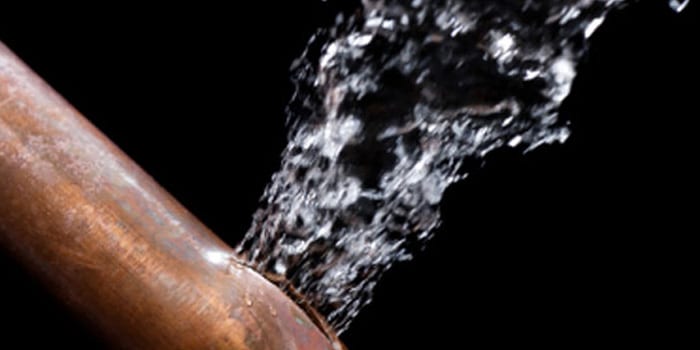
You should run water through any piping which has gone for an extended period of time without use (such as radiator pipes which have gone unused during the warm summer months or pipes connected to a toilet in a spare guest room which does not get much use) in order to make sure that they aren’t leaking. This will stop them from springing a nasty surprise upon you when you decide to call them back into action all of a sudden.
Washing Machines
While washing machines are known for using up an excessive amount of electricity in order to operate, they also use up very high volumes of water. In order to save water, you should only use washing machines when you have a full load to do. Even then, you will probably not need to put the machine on at its highest settings or longest cycle. Not only will this approach to washing machines save you money on water and electricity charges, but it also decreases the chances of your clothes shrinking or having their colours run into each other during the washing cycle.
Kitchen
The day to day running of a functioning kitchen requires the use of quite a lot of water. This is an unavoidable fact, but does not mean that you should throw in the towel. There are still ways to limit how much water you use in the kitchen and make saving water.
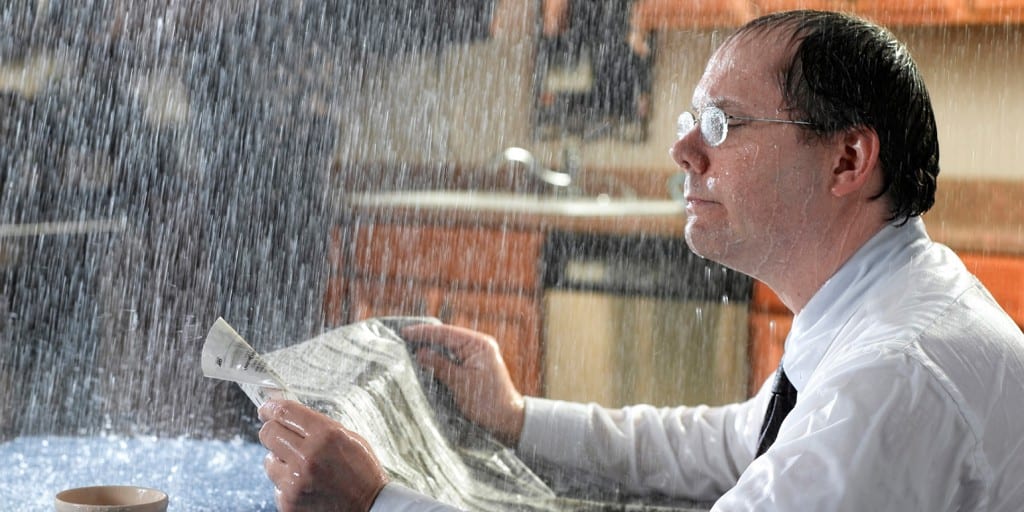
For example, when you are cooking you will often find yourself with leftover water (often referred to as ‘gray water’). Rather than simply pouring this down the sink, you can get good use out of ‘recycling’ it as it contains nutrients which have been transferred into the water during the cooking process. One clever use of the gray water is for watering plants. The nutrients contained within gray water that was made when cooking vegetables (for vitamins) and boiling eggs (for calcium) is significantly better for your plants than the normal water provided by your taps.
Garden:
The aforementioned gray water helps you reduce the amount of water that you need to keep your garden’s plants fresh and healthy. If you don’t have any gray water to use you should always try to avoid watering your garden plants with a hose as this unnecessarily uses up far more water than is needed, much of with simply goes to waste by means of evaporation (if it is sprayed on too thickly) or just missing its target completely.

Perfectly god water falls from the sky in some volume nearly every day in Ireland. If you are savvy you can collect this water and use it as you see fit. Setting up containers such as barrels or storage drums will allow you to gather large quantities of rain water which you can hang on to for times when rain is scarce and your garden’s plants are running the risk of drying out. This simple means of irrigation can save you a great deal on your water bills over the course of the year.
Showers or Baths?
One of the most hotly debated aspects of saving water is which means of washing one’s self is less wasteful; baths or showers. Most people will tell you that having a shower uses up less water than taking a bath, but is this necessarily true in all cases? There are a number of factors which must be taken into consideration before declaring one as being better outright.

The main thing to consider about showers is that not all showers are the same. They vary wildly in terms of output. A state of the art power shower, for example, will expel water at a rate of 17 litres every minute. A bathtub, when full, generally hold around 200 litres of water. With this in mind, using a power shower for ten minutes or less will result in you using up considerably less water than if you were to take a bath. Considering the average person spends roughly eight minutes in the shower at a time, it appears that we have a clear winner – taking a shower will save you more water than if you were to take a bath instead.
Just because the average shower uses up less water than the average bath doesn’t mean that the case is closed. There are more things to take into consideration in relation to a shower. For example, showers use up electricity in addition to the water that they expel. This increases two household bills instead of just one. The combined price of running an electric shower for a full year in the average UK household has been worked out as costing in the region of €900 (around €1,100) per annum.
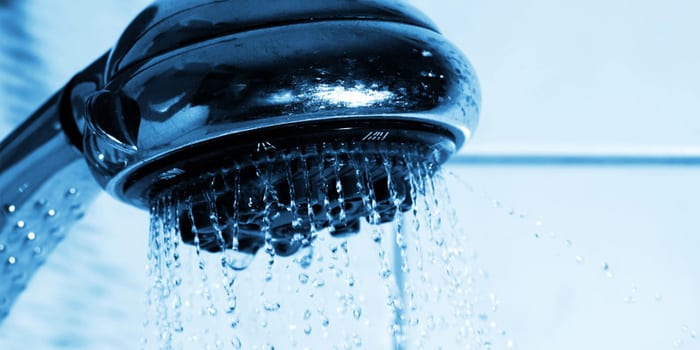
To reduce the amount of water that your power shower expels you should consider having what is called a ‘low-flow’ shower head installed onto it. This simple device will cut the volume of water sprayed out by an electric shower in half, offering a substantial saving in terms of water charges. Having a ‘low-flow’ shower head will not reduce your power shower’s ability to clean you as such showers have too much water pressure in any case.
In the case of nonpower showers, they can sometimes take a few minutes to heat up, meaning that you will have to leave them running for a while before you can hop in and wash yourself. Instead of simply letting said water run down the drain and go to waste, you should attempt to collect it and use it for other means (similar to the way we use ‘gray water’ as outlined in the ‘Kitchen’ and ‘Garden’ sections above). Collecting said water should be as easy as placing a bucket or basin in your shower area before you get started.
Contact us on 01 514 3300 or email
Share this post:
on Facebook
Deprecated: File Theme without comments.php is
deprecated since version 3.0.0 with no alternative available. Please include a comments.php template in your theme. in
/var/www/vhosts/dewarplumbers.ie/httpdocs/wp-includes/functions.php on line
6085










